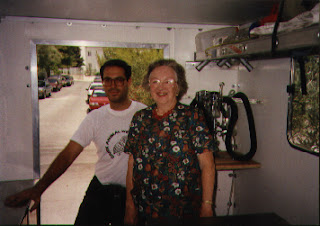Why we need
home-grown expertise in Greece
By Anna Stamatiou |
| Greek volunteers vets working with the support of Animal Action/GAWF. April 2013. |
GAWF Animal/Action has historically relied on expertise from
the UK UK
We know that in order for the way animals are regarded (and
therefore treated) to change radically across every level of Greek society, the
animal welfare message has to be embraced by the Greek public. If that is to happen, we have gradually to withdraw
anything that feels like “foreign” support and encourage the Greeks to take on
the issues and deal with them for themselves.
That is why we have regularly sent Greek professionals to
train in the UK, honing and adding to the skills they already have, so that we
can work with them when they return and allow them, through the practical,
hands-on work they do, to communicate the idea that animal welfare is not
something only crazy foreigners care about.
But we can’t train enough people, fast enough. That means we must build a local, home grown
network of professionals that appreciate the need for our high standards and
aim continually to improve their practice and add to their knowledge. This is what we have been aiming for of late
but the process is not without its risks and drawbacks.
Initially good supervision and guidance are needed. One difficulty that has been put in our way
is the attitude of the Greek government towards the use of foreign vets… Although on paper they may come and practice,
there are so many hoops for them to jump through, that in effect it is not
practical to use them – at least not if we want to remain within the law. This means we cannot derive the benefit of
their skills and experience while working in the field, and our Greek
colleagues miss out on potential learning opportunities.
Then, Greek vets and their professional body do not want to
see volunteers from overseas coming in and offering their services at low or no
cost. They believe this takes away their
customers and undermines their position and their fee structures. So they are inclined to report any activity
of this kind to the authorities, in an effort to stop it.
Now, one of the principal funding bodies in the UK , which used to support GAWF/Animal Action’s
work most generously, has decided that, in the face of government and
professional intransigence and lack of cooperation, it will, with immediate
effect, suspend all its funding for welfare work in Greece















